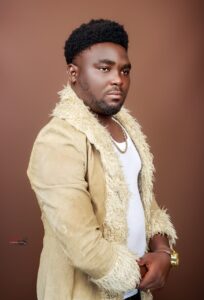
Mandy Patinkin will sing at the Kimmel Center for the Performing Arts on Oct. 30. (Photo by Joan Marcus)
Mandy Patinkin’s career stretches back decades, with parts in shows as diverse as “The Princess Bride,” “Yentl” and “Homeland.”
He’s won Emmys and Tonys, performed on Broadway and even originated several roles, such as Georges Seurat in “Sunday in the Park with George” and Che in “Evita.” On top of that, he’s a singer and has released several albums of his songs.
On Oct. 30 at 7:30 p.m., he brings that music to Philadelphia for “Mandy Patinkin in Concert: Diaries” at the Kimmel Center for the Performing Arts. In addition to songs from his own albums, he will perform some of his favorite Broadway and American numbers.
Though his musical chops might not be as well known as his acting ones, Patinkin has been singing for longer than he’s been acting. In fact, he got his start in the performing arts by singing in the family and boys’ choirs at his synagogue growing up in Chicago.
His first experience acting would come a few years later in high school. His first show was “Anything Goes” at the Young Men’s Jewish Council Youth Center.
“I hated school,” Patinkin said. “I kept talking to the mirror at home and screwing around in front of the mirror. My mother said, ‘Why don’t you go to the youth center? They’re doing plays over there.’ And I said, ‘You don’t know me at all. That’s not for me. That’s not who I am.’”
But when another student at school recommended it, he gave it a shot.
He continued with the performing arts through college at the University of Kansas. He spent so much time performing, in fact, that the chancellor of the school called Patinkin into his office and urged him to spend time on his studies as well.
Afterward, Patinkin continued onto The Juilliard School, where he trained as a classical actor. He told himself he needed to make a living within five years of graduating, or he’d be out of the industry. Back home, he had work in recycling waiting for him. It was what his father had done for a living, but his father didn’t like the job, and Patinkin didn’t want to follow in those footsteps.
He got one job in theater, then another, and another. Eventually, he landed a part in “The Princess Bride.”
“It was just a great time, great cast, great everything,” Patinkin said, reflecting on the ‘80s cult classic. “What a joy it was. You know, it was just a job. We didn’t know it would turn into what it turned into, and every generation ended up adoring it. What could make you happier?”
Last year, during a guest appearance on “The Late Show With Stephen Colbert,” Patinkin said he gets asked all the time to repeat his most famous line from “The Princess Bride”: “Hello, my name is Inigo Montoya. You killed my father. Prepare to die.”
But there’s another Inigo Montoya line that Patinkin described as William Goldman’s greatest gift. At the end of the film, the character says, “I have been in the revenge business so long, now that it’s over, I do not know what to do with the rest of my life.”
To play the greatest swordsman, Patinkin had to brush up on his fencing skills. Though he had done some fencing work at Juilliard and some for Shakespeare plays, this, he said, “was the real deal.” So he started training with Henry Harutunian, the Yale Olympic fencing coach, and Bob Anderson, a British Olympic fencing coach.
That was far from the only time Patinkin learned a new skill or subject for a part. When he played a heart surgeon on “Chicago Hope,” which ran from 1994-2000, he scrubbed in on open-heart surgeries. For “Homeland,” he and others go every year to Washington, D.C. for “spy camp,” where they meet important people from the intelligence community, think tanks and the press. He learned how to cut silhouettes for “Ragtime,” and practiced drawing for “Sunday in the Park With George.”
But the greatest pleasure of his career, he said, came out of “Homeland.” The show increased his global platform. In 2015, he was filming in Berlin. One episode took place in a Syrian refugee camp, and the experience set Patinkin on a new journey.
“At that moment, when I saw the pictures of the 125,000 people fleeing the conflict in Syria, trying to reach a new beginning and try(ing) to get across the Balkan route to Germany, I looked at those pictures and I saw my ancestors fleeing Poland and Russia,” Patinkin said. “They reminded me of my family. I thought, ‘Those are my family, those people.’ I wanted to be with them and hold their hand and give them water and support.”
When he finished with that season of “Homeland,” he hopped on a plane to Greece to meet with representatives of the International Rescue Committee, an organization, he noted, that Albert Einstein helped found to rescue people after World War II. He used those relationships to try and bring attention to refugees’ plight.
Since then, the situation has only gotten worse, he said. The United States has drastically cut the number of refugees it accepts.
“The world is in trouble, the world is broken, the world is bleeding, and there are millions of refugees that are begging us to help them have a new beginning, and that is absolutely to the core of my Jewish identity,” Patinkin said.
As his Grandpa Max always used to say in Yiddish, “The wheel is always turning.”
“If you’re on top,” Patinkin explained, “know that one day you’ll be on the bottom, and it’s the same idea as if you don’t open the door for someone when they come knocking for help, no one will open the door for you and your loved ones when you come knocking for help.”
[email protected]; 215-832-0729






